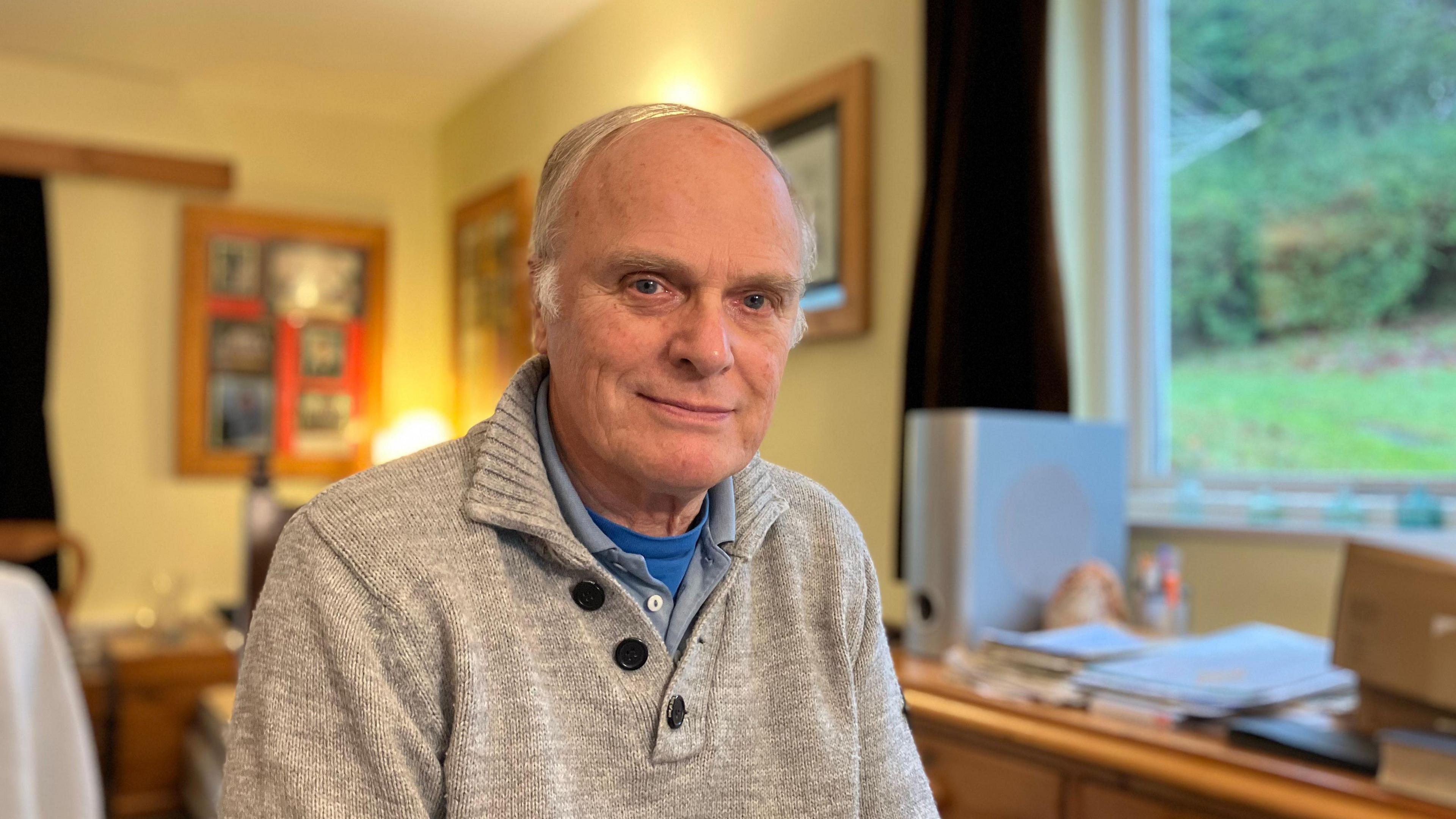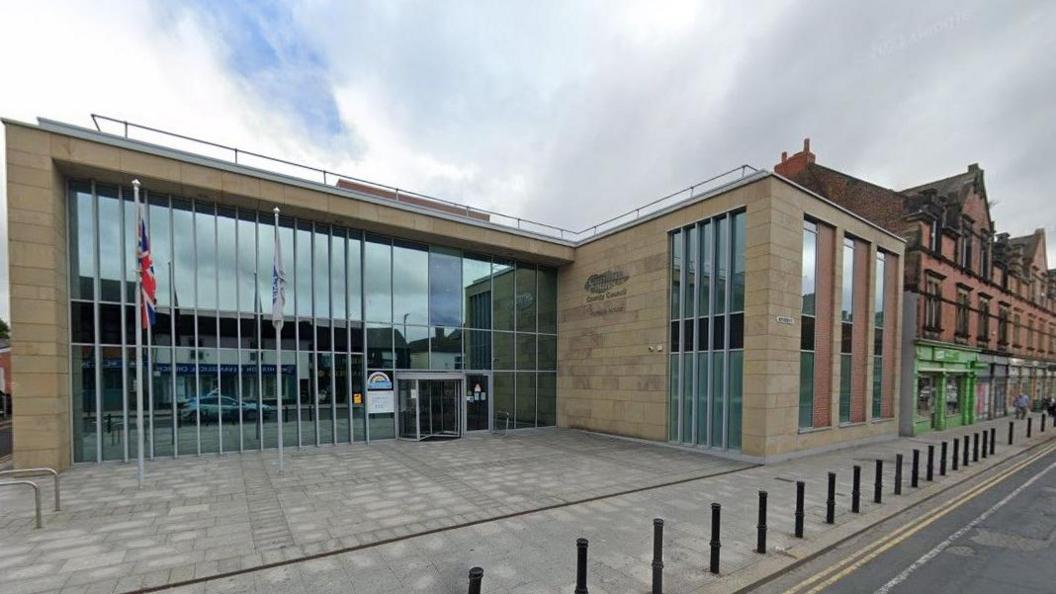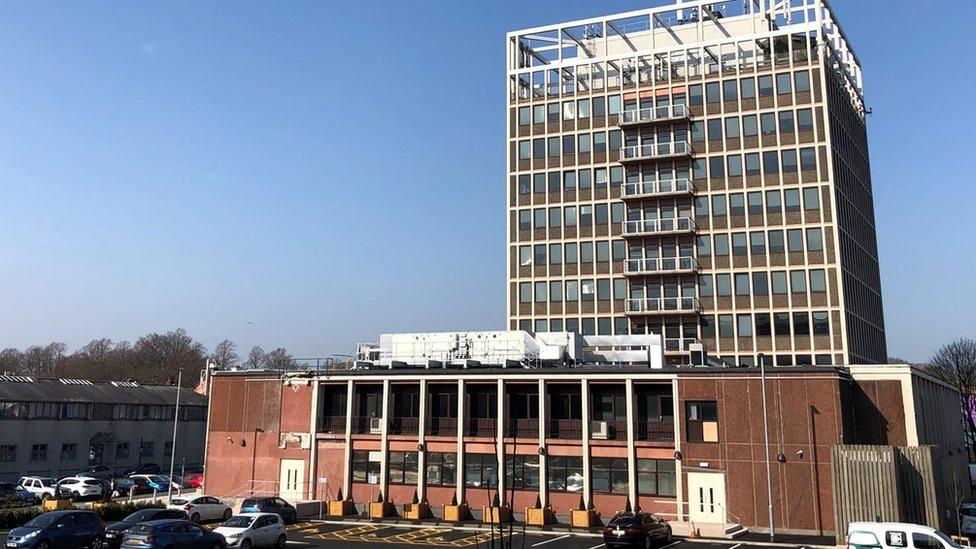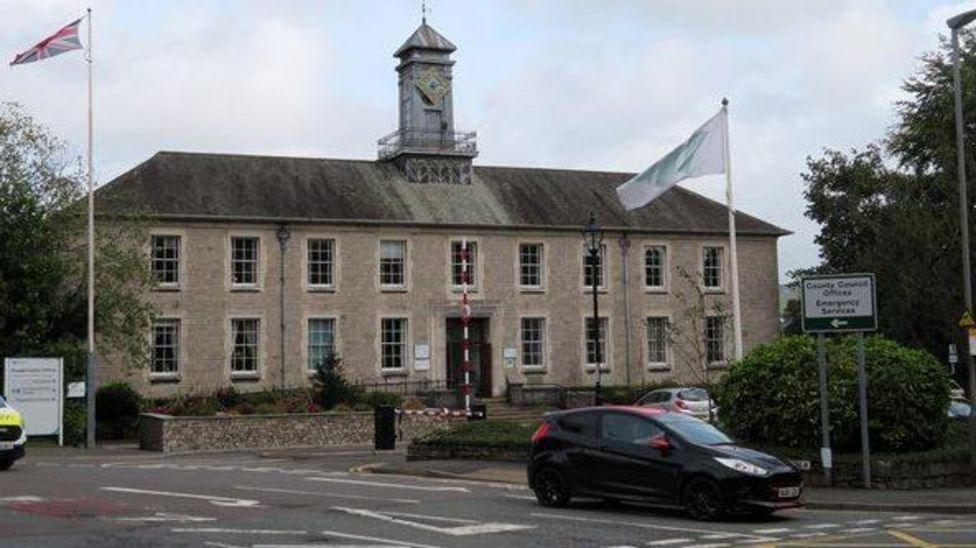'Councillors should not set their own pay'

Ian Kell previously sat on Westmorland and Furness Council's remuneration panel
- Published
The system for setting councillors' pay needs to change, according to a former member of a panel that advises on allowances.
Ian Kell sat on Westmorland and Furness Council's independent remuneration panel (IRP) until recently.
He said the panel was largely made up of "bureaucrats" unlikely to be critical of rising allowances.
The council said it was vital to show there was an "independent, open process" and recruitment for the panel was undertaken in accordance with statutory requirements.
Councillors receive an allowance as payment for their work and can also claim expenses.
Local authorities must appoint a panel to make recommendations on how much councillors should be paid, though councillors themselves make the final decision.
Ian Kell, from Mealbank near Kendal, said members of his panel were typically "white collar, public sector bureaucrats, which is not representative of the people of Westmorland and Furness".
He said such people were less likely to criticise a proposal to raise allowances and most panel members came from outside the local authority area, giving them less of a stake in limiting council expenditure.
Last year the panel recommended an annual basic allowance, received by all elected representatives, of £13,000 but councillors had asked for this to be reviewed.
The panel subsequently returned with a recommendation of £13,500, with Mr Kell saying he was the only member to oppose the rise.
He said councillors should not set their own pay, rather this should be done by an "independent person".
'Zero to little value'
The panel makes recommendations after considering evidence, though this is not routinely published.
The BBC has obtained some of the submissions made by Westmorland and Furness councillors under freedom of information law.
Some councillors said they spent between five and 15 hours a week on their duties, excluding extra responsibilities which commanded a higher allowance, while others said they worked for longer.
One unnamed councillor claimed some of their colleagues "add zero to very little value" and "pass all local casework to their respective parish councillors or parish clerks".
Neighbouring Cumberland Council has withheld similar documents and has been given permission to appeal a ruling requiring it to release them.
A spokesperson for Westmorland and Furness Council said a review of the council's governance structure was completed in July 2024.
"Information considered included benchmarking with comparator councils, and responses to a questionnaire sent to all members.
"Typically, members estimated spending around 16 hours a week on responsibilities related to their basic allowance, though... given the council's large geographical area and difference in travel times, those estimates varied."
A recruitment process for the IRP ran to October 2024, the spokesperson said, adding: "The application pack included a range of pointers for applicants and emphasised the requirement for 'individuals who can demonstrate independence from the council'.
"It was considered by the council that the appointed candidates best demonstrated the relevant skills and experience necessary for the role."
Follow BBC Cumbria on X, external, Facebook, external, Nextdoor and Instagram, external. Send your story ideas to northeastandcumbria@bbc.co.uk.
- Published23 September 2024

- Published23 November 2023

- Published5 July 2024
